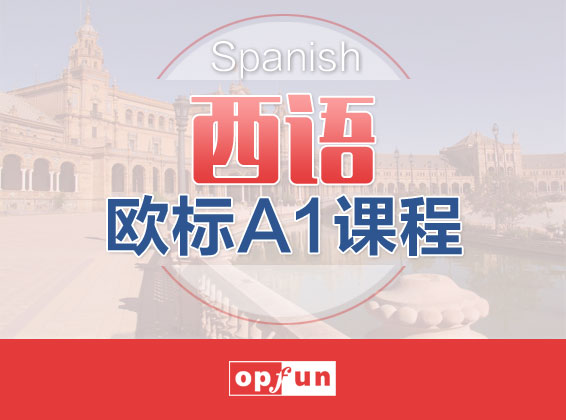|
南京歐風意語下面帶來了意大利語的助動詞,大家快點和南京歐風老師一起學習下面的這些意語語法吧!
When forming the passato prossimo, which auxiliary verb should be used—avere or essere? How do you decide? Compound tenses such as the passato prossimo are formed with the present indicative of the auxiliary verb avere or essere and the past participle (participio passato). Transitive Verbs Take Avere Transitive verbs are those that take a direct object. For instance: Io ho mangiato una pera. (I ate a pear.) Loro hanno già studiato la lezione. (They already studied the lesson.) Non ho mai visto Genova. (I've never visited Genoa.) The compound tense of a transitive verb is formed with the present indicative of the auxiliary verb avere and the past participle (participio passato). The past participle is invariable and ends in -ato, -uto, or -ito. In phrases with a transitive verb, the direct object of the verb may be expressed explicitly or implied. For example: Io ho mangiato tardi. (I ate late.) Intransitive Verbs Take Essere Simply put, intransitive verbs are those that do not take a direct object. These verbs usually express movement or a state of being. The auxiliary verb essere plus the past participle is used to form the passato prossimo and other compounds of almost all intransitive verbs (and the past participle must agree in number and gender with the subject.) The table below contains conjugations of arrivare, crescere, and partire in the passato prossimo. PASSATO PROSSIMO WITH ESSERE PERSONARRIVARE (TO ARRIVE)CRESCERE (TO GROW)PARTIRE (TO LEAVE, TO DEPART) (io)sono arrivato(-a)sono cresciuto(-a)sono partito(-a) (tu)sei arrivato(-a)sei cresciuto(-a)sei partito(-a) (lui, lei, Lei)è arrivato(-a)è cresciuto(-a)è partito(-a) (noi)siamo arrivati(-e)siamo cresciuti(-e)siamo partiti(-e) (voi)siete arrivati(-e)siete cresciuti(-e)siete partiti(-e) (loro, Loro)sono arrivati(-e)sono cresciuti(-e)sono partiti(-e) Notice that each of the past participles conjugated with essere has four possible endings, depending on the gender of its subject. Take a look at these examples: La zia è andata a casa. (The aunt went home.) Le zie sono andate a casa. (The aunts went home.) Lo zio è andato a casa. (The uncle went home.) Gli zii sono andati a casa. (The uncles went home.) When the gender of the subject consists of both males and females, or is unstated, use the masculine form (think of it as a "generic" or "standard" form): Lo zio e la zia sono andati a casa. (The uncle and aunt went home.) Noi siami andati a casa. (We went home.) The following table contains a list of other most commonly used intransitive verbs and their past-participle forms. INTRANSITIVE VERBS: PAST PARTICIPLES andare (to go)andato arrivare (to arrive, to reach)arrivato cadere (to fall, to drop)caduto costare (to cost)costato crescere (to grow)crescuito diventare (to become)diventato durare (to last, to continue)durato entrare (to enter)entrato essere (to be)stato morire (to die)morto nascere (to be born)nato partire (to leave, to depart)partito uscire (to exit)uscito venire (to come)venuto Some Verbs Take Either How could it be that some verbs take EITHER essere or avere as the auxiliary verb in compound tenses? It depends on the context of the sentence. Here are a few examples of verbs functioning both transitively and intransitively: bruciare (to burn) Hai bruciato la torta? (Did you burn the cake?) Durante la notte scorsa la cascina è bruciata. (During the night, the dairy burned.) diminuire (to reduce, decrease) Abbiamo diminuito il consumo d'energia in casa. (We reduced energy consumption at home.) I prezzi della carne sono diminuiti questa settimana. (The price of meat has decreased this week.) finire (to finish) Il professore ha finito la conferenza alle tre. (The professor finished the conference at three o'clock.) La conferenza è finita alle tre. (The conference finished at three o'clock.) The following table lists commonly used verbs that can be both transitive and intransitive, depending on their use. VERBS THAT MAY BE TRANSITIVE AND INTRANSITIVE affogare(to drown) aumentare(to increase) dimagrire(to lose weight, to make thin) incominciare(to begin, to start) mutare(to change, to alter) raddopppiare(to double) terminare(to finish, to end) 同學們都掌握了上面的這些內容了嗎?南京歐風老師祝愿同學們都能夠順利的通過考試哦。 (責任編輯:admin) |
文中圖片素材來源網絡,如有侵權請聯系刪除







